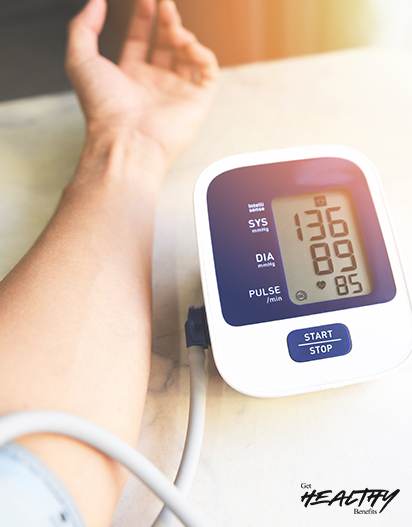The Honest Truth About Weight-Loss Pills - Everything You Need To Know
For people who desire to shed some extra pounds quickly and easily, weight-loss pills have become a popular choice. With the promises of quick results and minimal effort, it's no wonder many people found these pills to solve their weight loss struggles.
However, weight loss pills are not magic, and their effectiveness and safety have been debated.
So, In this article, we'll explore the truth about weight-loss pills, their efficacy, safety, and overall impact on weight loss. We'll also talk about some weight-loss pills available. We'll also discuss the role of weight loss pills in a comprehensive weight-loss plan and whether they should be used as a sole solution or in conjunction with other lifestyle changes. So, if you're considering weight-loss pills as an essential element of your weight-loss journey, read on to discover the truth.
Weight Loss has become a trend
Food is our passion, but it may be masked by our desire to lose weight. The weight loss goal is usually at the top of the list of priorities when you think of new resolutions for the New Year. Due to the massive popularity of programs and products for weight loss, American wallets also lose billions of dollars yearly.
Nowadays, we live in a time where many people take extreme weight loss measures. These days, those products promising the most rapid or dramatic weight loss have generated significant doubt and debate.
There's a distinct difference between non-regulated weight loss pills and those which FDA has approved. Food and Drug Administration (FDA) for helping people shed weight. A few patients may benefit from using these FDA-approved medicines under a physician's guidance, provided they follow a nutritious diet and work out regularly; what you should learn about these diet supplements.
Do diet pills really provide the solution?
Many health experts believe the best method to lose weight is by exercising regularly and eating a balanced diet with moderate amounts of healthy foods. Changing your mindset and understanding food is essential to losing weight.
You might sometimes wonder what do weight loss pills do. Under the guidelines issued by the American Heart Association, A combination of healthy eating, more fitness, and treatment for behavioral issues can assist patients in losing up to 10% of their weight in the initial six months of therapy.
However, for specific people, it's not enough. A doctor can assist you in selecting the best prescription medications for weight loss, often called diet pills. Following these guidelines, you may be suitable to you if
Have a 30 or higher body mass index (BMI).
Have a BMI of 27 or higher and health problems.
I haven't shed the same weight per week, even after six months of eating, exercising, and behavioral change.
The Centers for Disease Control and Prevention has a user-friendly calculator to help you calculate your BMI. This index measures body fat, concerning your height and weight. The index may not be a reliable weight gauge if you're highly muscular. Consult your doctor for the most effective method to measure your health.
Most often, pregnant women, teenagers, and children should not take diet pills.
Weight Loss Pill Debate
Dietary supplements for weight loss are very controversial. There are several weight loss pills have been removed from the market following severe health issues. One of them was a mixture of fenfluramine and phentermine. The product was associated with numerous deaths—the number of deaths in addition to cases of pulmonary hypertension and broken heart valves. Due to the pressure of the FDA and the manufacturer, they removed this product from their market.
Given this past and the potential side effects of weight loss pills, many doctors aren't keen on prescribing the drugs. Dr Romy Block, an endocrinologist in Skokie, Illinois, states: "I do prescribe diet medication occasionally. However, I am cautious about it. Various negative side effects have to be observed, like heartbeats, blood pressure and mood."
Block says that a majority of patients lose between 5 and 10 pounds after taking weight loss drugs. "This is considered significant by doctors, yet is extremely disappointing for the patients. Unfortunately, this small reduction is rapidly regained when patients stop taking the drug."
How Do Weight Loss Pills Work?
The weight loss medication work in various ways, it includes pills or injections. They all work identically but in a different way. They can either reduce your appetite or decrease your body's capacity to take in fats derived from food. Certain antidepressants, diabetic and anti-seizure medications are frequently prescribed to assist with weight loss.
For a long time, the FDA has approved these medications:
naltrexone/bupropion (Contrave)
orlistat (Xenical, Alli)
liraglutide (Saxenda)
phentermine/topiramate (Qsymia)
To be used for short-term purposes For short-term use FDA has approved the following weight loss medications:
phentermine (Adipex-P, Fastin)
phendimetrazine (Bontril)
benzphetamine (Didrex)
diethylpropion (Tenuate)
Are you considering the use of weight loss pills?
Avoid products that claim to offer fast and quick weight reduction. Every weight loss supplement available over the drug store counter isn't approved by authorities like the FDA.
According to the FDA, many of these supplements cannot work as advertised, and sure of them are risky.
The FDA has found some advertised diet pills containing those substances not approved by any authentic authorities.
FDA-approved weight loss pills aren't the ultimate solution to weight reduction. They will not work for everybody; none are entirely safe and have adverse negative effects. The tiny advantages they bring may be greater than the risk when your health-related risks from obesity are important.
How to get your doctor to prescribe weight loss pills?
If you've tried to lose weight with diet and exercises but no results, you could think about how you can ask your physician for weight loss pills.
Weight loss pills prescribed by your doctor may aren't the answer to everyone struggling to lose weight, but if you're the perfect candidate, these drugs could provide that solution you've been waiting for. They can help in the weight loss process.
Before you start thinking about the most crucial concerns or getting in the wrong direction, your initial stage is to discuss your medical condition with your physician to discover whether your health condition is perfect for weight loss medication.
How to ask your doctor for weight loss pills?
Tips for speaking with your doctor
Be honest in conversation. Let your healthcare providers be aware of your issues.
Discuss the problems and difficulties you have regarding hunger and cravings.
Which are your weight loss and health objectives?
Talk about your general health.
Use your weight loss evaluation to guide your discussion. It is intended to assist you in evaluating your efforts to lose weight and also serves as a guideline on the is critical to discuss with your physician.
Consult your physician to determine if prescribed weight loss medications suit you. Your physician can offer more details on the most effective and safe ways to shed excess weight and maintain your weight.
Share this post
Subscribe to new posts











